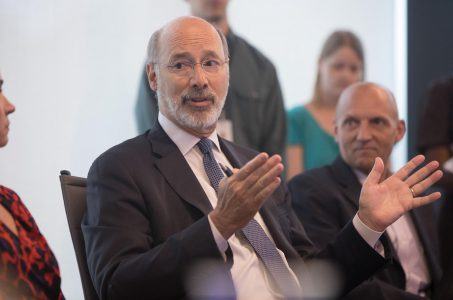Pro-RAWA Kindt Calls for US Ban on Slot Machines
Posted on: November 8, 2015, 02:16h.
Last updated on: November 7, 2015, 02:25h.

John Kindt, Professor of Business and Legal Policy at the University of Illinois and vocal anti-gambling campaigner, has called on the US government to “re-criminalize” electronic gambling machines (EGMs).
Writing an op-ed for the Southern Illinoisan, Kindt, who recently took the stand to testify for RAWA at the recent congressional hearing, claims that the economic benefits of casinos are far outweighed by the social costs.
“Gambling’s lobbyists allege new tax revenues, but academic studies indicate that the costs of the gambling-caused crime, bankruptcies, and other new social costs to the taxpayers are at least $3 for every $1 in new tax revenue,” he writes.
“In most states, the tax revenues are slowly siphoned away from education and teachers and back to gambling’s insiders, such as the recent New York Lottery scandal where $1.7 billion was allegedly misdirected.”
Ancient Study
Unusually, for an academic, Kindt makes vague reference to “studies,” without citing sources, as in the quote above, and here: “Studies confirm that student populations are particularly vulnerable to EGM gambling addiction and will get hooked at double the adult addiction rates.”
While we’re happy to take the good professor’s word for it, we should point out that at the RAWA hearing he was fond of quoting from a study that concluded that “internet gambling cannot be regulated.” This is an ancient study from 1999 and the days of dial-up internet, whose authors were perhaps not best placed to grasp the bigger picture.
In his op-ed Kindt claims that the US National Gambling Impact Study, also published in 1999, labelled slots, or more specifically EGMs, as the “crack cocaine” of gambling.
However, this is disingenuous; the study makes no such claim, merely quoting an opinion of psychologist Dr Robert Hunter, who referred to it as such in 1992.
Dubious Statement
Kindt also states that the US National Gambling Impact Study “concluded that any states with EGMs convenient to the public needed to re-criminalize those machines.”
Except it made no such recommendation. It merely advised that Congress should instigate “analysis of the development of gambling difficulties associated with electronic gambling devices (EGD’s) and the risk factors that accompany this evolution for customers most likely drawn to this form of gambling.”
“EGMs shrink the consumer economy, denigrate quality of life, increase taxes, and stigmatize governments,” concludes Kindt. “Governments must change their image, re-criminalize EGMs, and ‘grow the economy’ to attract new consumer businesses, Otherwise, EGMs and associated gambling proponents will continue to deteriorate local and state economies.”
Kindt’s main assertion, that gambling does not contribute to the economy, remains a hotly debated point.
Related News Articles
Most Popular
PUCK, NO! Health Dept. Closes Las Vegas Wolfgang Puck Restaurant
Oakland A’s Prez Resigns, Raising Questions About Las Vegas Move
MGM Osaka to Begin Construction on Main Resort Structure in April 2025
Most Commented
-
UPDATE: Whiskey Pete’s Casino Near Las Vegas Closes
— December 20, 2024 — 33 Comments -
Zillow: Town Outside Las Vegas Named the Most Popular Retirement City in 2024
— December 26, 2024 — 32 Comments -
Oakland A’s Prez Resigns, Raising Questions About Las Vegas Move
— December 27, 2024 — 9 Comments -
UPDATE: Former Resorts World & MGM Grand Prez Loses Gaming License
— December 19, 2024 — 8 Comments
















Last Comment ( 1 )
Professor Kindt has been fighting the casino industry for decades, representing various anti-gaming groups. And his arguments that casino gaming has more negative impacts than positive ones, is particularly misleading, especially the arguments about crime. In most jurisdictions, where casinos, riverboats or race tracks depend primarily on nearby population, crime is down in most. Only in places, like Las Vegas or Atlantic City, where visitor totals exceed 30 to 40 million annually, has crime actually increased. But that is also true of America's favorite family resort, Orlando, where the FBI stats show higher violent and property crime rates than the large casino resorts. And when you include the average daily visitor count to the permanent population, you will find that a person in Atlantic City today is about 70% less likely to be a victim of crime, than before casinos in 1978.